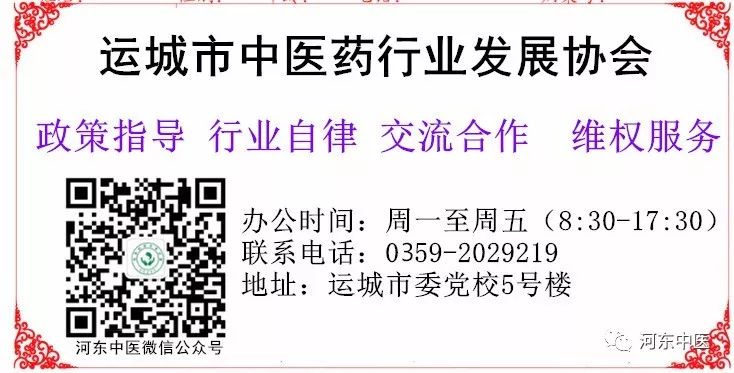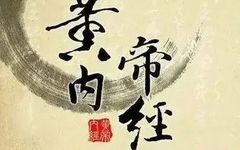
1. I know that all diseases arise from the Qi. Anger causes Qi to rise, joy causes Qi to relax, sadness causes Qi to dissipate, fear causes Qi to descend, shock causes Qi to become chaotic, and overthinking causes Qi to stagnate.
Explanation: I have come to understand that many diseases occur due to changes in Qi. Intense anger causes Qi to rise against its natural flow, excessive joy disperses Qi, deep sadness depletes Qi, fear causes Qi to sink, shock disrupts Qi, and excessive contemplation leads to Qi stagnation.
2. The heart houses the spirit, the lungs house Qi, the liver houses blood, the spleen houses flesh, and the kidneys house will, thus forming the body. When will is harmonious, it connects internally to the marrow, forming the five organs. The pathways of the five organs all emerge from the meridians to circulate blood and Qi. When blood and Qi are not harmonious, various diseases arise; therefore, one must maintain the pathways of the meridians.
Explanation: The heart contains the spirit of the body, the lungs contain Qi, the liver contains blood, the spleen contains flesh (form), and the kidneys contain will. Each of the five organs has its own function, forming an organic body. Only when the spirit is free can blood and Qi flow normally and connect with the internal marrow, allowing the five organs and the entire body to function in harmony, thus creating a balanced and healthy body.
The five organs are the center of the body, and the connections between the five organs and various parts of the body, as well as among the five organs themselves, are facilitated by the meridians that circulate Qi and blood, allowing for coordination of the body’s functions. If the circulation of Qi and blood is obstructed, various diseases will arise. Therefore, it is essential to keep the meridians unobstructed.
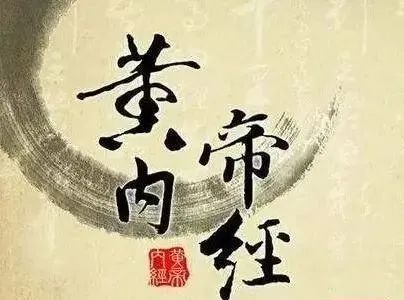
3. When will is harmonious, the spirit is focused, the soul is not scattered, regrets and anger do not arise, and the five organs are not affected by evil.
Explanation: When will is balanced, the spirit can concentrate, thoughts are agile, the soul functions normally without scattering, and there are no excessive emotional stimuli such as regret or anger, allowing the functions of the five organs to remain normal and free from external evils.
4. Before diagnosing a disease, one must inquire about the patient’s past status. If a patient has fallen from a high status to a low one, they often feel humiliation and depression, and even without external evil influences, diseases can arise from within, known as ‘loss of nourishment.’ If a patient has gone from wealth to poverty, they may be affected in diet and emotions, leading to a condition called ‘loss of essence.’ These diseases arise from emotional distress and Qi stagnation in the five organs.
Explanation: Before diagnosing a disease, it is essential to ask the patient about their life circumstances. If a patient was once of high status and has since fallen to a low status, they often experience feelings of humiliation and depression, which can lead to internal diseases even without external evil influences, termed ‘loss of nourishment.’ If a patient was once wealthy and has become poor, they may be affected in their diet and emotions, leading to a condition called ‘loss of essence.’ These diseases stem from emotional discomfort and Qi stagnation in the five organs.
5. Therefore, the wise person’s method of health preservation must align with the four seasons, adapt to cold and heat, harmonize joy and anger, and find peace in their dwelling. By doing so, evils cannot invade, and longevity is achieved.
Explanation: Thus, the method of health preservation for the wise is to follow the seasonal changes, adapt to the climate’s cold and heat, moderate emotions, and harmonize the extremes of Yin and Yang. By doing this, one can prevent the invasion of diseases and achieve longevity.
6. The heart is the master of the five organs and six bowels; when sorrow arises, the heart moves, and when the heart moves, all the five organs and six bowels are affected.
Explanation: The heart governs the five organs and six bowels, so emotions such as sadness, grief, and worry can disturb the heart, leading to an imbalance in the five organs and six bowels.
7. The defensive Qi does not enter the Yin, but remains in the Yang. When it stays in the Yang, Yang Qi is abundant; when it cannot enter the Yin, Yin Qi becomes deficient, leading to an inability to sleep.
Explanation: The defensive Qi circulates in the Yang during the day when a person is awake, and at night it enters the Yin, allowing for sleep. If the defensive Qi cannot enter the Yin and remains in the Yang, it causes an excess of defensive Qi in the Yang, leading to a deficiency of Yin Qi, which prevents sleep.

8. Joy leads to harmonious Qi and will, allowing the defensive and nutritive Qi to flow smoothly, thus Qi becomes gentle.
Explanation: When a person is happy, the nutritive and defensive Qi flows smoothly, but excessive joy can scatter the heart Qi, hence it is said that joy leads to gentle Qi.
9. At the age of ten, the five organs begin to stabilize, blood and Qi circulate, and the Qi is directed downward, hence the desire to run.
Explanation: By the age of ten, the five organs have developed to a certain level of health, and the circulation of blood and Qi is balanced, with the essence from the kidneys rising, leading to a desire for movement.
10. The heart is the minister of the organs, from which wisdom emerges.
Explanation: The functions of the body’s organs differ, and their relationships can be likened to a feudal system where the heart acts as the highest ‘ruler,’ directing and coordinating the functions of all organs, and from the heart, human wisdom arises.
11. At around forty-nine years of age, the Ren Meridian becomes empty, the Chong Meridian weakens, the heavenly essence is depleted, and the pathways are blocked, leading to the inability to conceive.
Explanation: By the age of forty-nine, the Ren Meridian becomes empty, the Chong Meridian’s Qi and blood weaken, the heavenly essence is exhausted, and menstruation ceases, leading to a loss of reproductive ability.
12. The twelve meridians and three hundred sixty-five collaterals carry blood and Qi to the face and enter the orifices. The essence of Yang Qi ascends to the eyes, allowing for sight; the collateral Qi flows to the ears, allowing for hearing. The collateral Qi is governed by the heart.
Explanation: The twelve meridians and their associated three hundred sixty-five collaterals carry all blood and Qi to the head and enter the various orifices. The refined Yang Qi ascends to the eyes, enabling vision; the collateral Qi flows to the ears, enabling hearing. The collateral Qi is governed by the heart.
13. The invasion of evil can arise from either Yin or Yang. Those arising from Yang are due to wind, rain, cold, and heat; those from Yin arise from diet, living conditions, and emotional disturbances.
Explanation: The invasion of evil Qi that causes disease can first occur in the Yin meridians and then affect the Yang meridians, or vice versa. Diseases that begin in the Yang meridians are often due to external evils such as wind, rain, cold, and heat; those that begin in the Yin meridians are usually due to dietary imbalances, irregular living habits, and excessive emotional fluctuations.
14. Therefore, the sage practices non-action, enjoys tranquility, and guards the essence of emptiness, thus their life is endless, in harmony with heaven and earth; this is the sage’s method of self-care.
Explanation: Thus, wise individuals understand the importance of balancing Yin and Yang, refrain from actions detrimental to health, and follow nature, finding joy in tranquility, allowing their spirit and will to remain carefree, thus achieving longevity. This is the method of health preservation for the wise.
15. Excessive fear and worry harm the spirit; when the spirit is harmed, fear arises, leading to endless indulgence. Excessive sadness depletes the spirit, leading to death; excessive joy scatters the spirit, preventing it from being stored; excessive worry blocks Qi, preventing it from flowing; excessive anger confuses the spirit, preventing it from functioning; excessive fear causes the spirit to scatter and not gather.
Explanation: Therefore, excessive fear, anxiety, contemplation, and worry can damage the spirit. When the spirit is harmed, fear arises, leading to the continuous scattering of the essence of the five organs. Excessive sadness can deplete the internal organs, leading to death; excessive joy can scatter the spirit, preventing it from being stored. Excessive worry can block the Qi, preventing it from flowing; excessive anger can confuse the spirit, preventing it from functioning normally; excessive fear can cause the spirit to scatter and not gather.
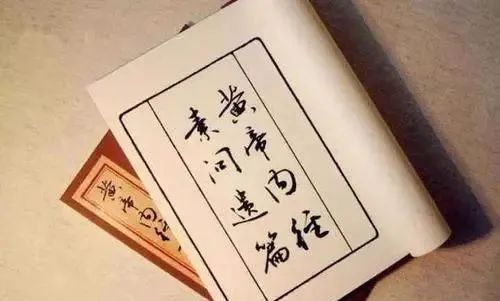
16. Intense anger causes Qi to become chaotic, leading to blood rising to the head, resulting in fainting.
Explanation: The Yang Qi in the body can become disordered due to intense anger. When Yang Qi rises excessively, it disrupts the normal coordination of the body, causing blood to rise and accumulate in the head, leading to fainting, known as ‘fainting due to Qi chaos.’
17. Anger causes Qi to reverse; if severe, it can lead to vomiting blood and diarrhea, hence Qi rises.
Explanation: Intense anger can cause liver Qi to reverse, leading blood to rise with the Qi, and in severe cases, it can cause vomiting of blood. If liver Qi affects the digestive function of the spleen and stomach, it can also lead to digestive issues and diarrhea. Thus, it is said that anger causes Qi to rise.
18. The five organs each suffer from disease at their respective times; if not, they transmit to each other. Humans are interconnected with heaven and earth, so the five organs each have their treatment times. When affected by cold, they become ill, leading to cough; if mild, it is a cough, if severe, it leads to diarrhea and pain. In autumn, the lungs are first affected; in spring, the liver is first affected.
Explanation: Coughing in the five organs occurs when each organ is affected by evil Qi during its corresponding season. Therefore, if coughing occurs outside the autumn season, which corresponds to the lungs, it indicates that other organs have been affected and the evil Qi has transferred to the lungs, causing coughing. The human body is closely related to the natural world, and the five organs correspond to specific seasons. Thus, when the five organs are invaded by cold evil during their respective seasons, diseases arise. Mild cases may lead to coughing, while severe cases can lead to diarrhea and abdominal pain. Generally, the lungs are the first to be affected in autumn, while the liver is first affected in spring, which can then influence the lungs and cause coughing.
19. Therefore, when a person sleeps, blood returns to the liver. The liver receives blood and enables vision; the feet receive blood and enable walking; the palms receive blood and enable grasping; the fingers receive blood and enable dexterity.
Explanation: During sleep, the body’s demand for blood decreases, leading to some blood being stored in the liver. When a person engages in various activities, blood is then distributed to the necessary areas. Thus, the eyes receive blood nourishment to see; the feet receive blood nourishment to walk; the palms receive blood nourishment to grasp; and the fingers receive blood nourishment for dexterity.
20. Anger causes Qi to reverse, accumulating in the chest, leading to stagnation of blood and Qi, swelling of the skin and muscles, and obstruction of blood vessels, resulting in heat, which consumes the skin, leading to thirst.
Explanation: Anger causes Qi to reverse and accumulate in the chest, leading to stagnation of blood and Qi, swelling of the skin and muscles, and obstruction of blood vessels, which generates heat. This heat consumes fluids, leading to a condition known as thirst.
21. Unregulated joy and anger harm the organs; when the organs are harmed, diseases arise from Yin.
Explanation: Unregulated emotions such as joy and anger can harm the internal organs, which belong to Yin, leading to diseases that arise from internal injuries to the five organs.
22. The liver is the general of the body, dependent on the gallbladder, and the throat serves as its messenger. A person who is indecisive and overly worried will have a deficiency in the gallbladder, leading to Qi rising and causing bitterness in the mouth; this should be treated by needling the gallbladder’s mu and shu points.
Explanation: The liver can be likened to a general, responsible for strategizing; the gallbladder is like a fair judge, responsible for decision-making. The meridians of the liver and gallbladder pass through the throat, making it the messenger of the liver and gallbladder. Patients with gallbladder issues often exhibit indecisiveness and excessive worry, leading to dysfunction of the gallbladder and bitterness in the mouth. Treatment should involve needling the gallbladder’s mu and shu points.
23. If there is a fall, blood stagnates internally; if there is intense anger, Qi rises and does not descend, accumulating under the ribs, thus harming the liver.
Explanation: A fall from a height can cause internal bruising. If intense anger occurs at this time, it can lead to Qi rising and not descending, causing blood to rise and accumulate under the ribs, thus harming the liver.
24. Gallbladder distension leads to pain and swelling under the ribs, bitterness in the mouth, and frequent sighing.
Explanation: Gallbladder distension is characterized by pain and swelling under the ribs, bitterness in the mouth, and frequent deep sighing.
25. When wood is overly suppressed, it leads to chaos; when the weather is disturbed, strong winds arise, causing trees to break. Thus, people may suffer from abdominal pain, rumbling intestines, and difficulty in eating and drinking.
Explanation: When wood energy excessively suppresses earth energy, it can lead to chaos, causing adverse weather conditions. Under such circumstances, people are prone to suffer from abdominal distension, intestinal rumbling, and difficulty in eating and drinking.
26. One should avoid negative emotions in winter, keeping the mind tranquil and undisturbed, and remain discreet in their intentions.
Explanation: In winter, one should avoid various negative emotional disturbances and keep a calm and peaceful state of mind, remaining discreet in their intentions, allowing the spirit to remain at ease and filled with optimistic and joyful emotions.

27. The liver is the root of endurance and the residence of the soul.
Explanation: The liver is fundamental to endurance, capable of storing blood and regulating its flow according to the body’s needs. When liver blood is sufficient, fatigue is less likely, and since the ‘soul’ must reside in the blood, the liver can also be seen as the place where the soul is stored.
28. At the age of seven, a girl’s kidney energy is strong, teeth grow, and by fourteen, the heavenly essence matures, the Ren Meridian opens, the Chong Meridian is abundant, and menstruation occurs regularly, allowing for fertility.
Explanation: According to physiological development, a girl undergoes a developmental stage at seven years old. By around seven, the kidney essence becomes vigorous, leading to the replacement of teeth and growth of hair; by around fourteen, the ‘heavenly essence’ that promotes reproductive function matures, allowing the Ren Meridian to open and the Chong Meridian to flourish, resulting in regular menstruation and the onset of fertility.
29. Fear causes essence to retreat; when it retreats, the upper body becomes blocked, leading to swelling in the lower body, thus Qi cannot flow.
Explanation: Excessive fear can damage the kidneys, leading to a retreat of the essence stored in the kidneys. When kidney function is impaired, the upper body becomes blocked, preventing Qi from ascending and causing swelling in the lower body, thus obstructing Qi flow.
30. The kidneys govern water and store the essence of the five organs and six bowels. Therefore, when the five organs are abundant, they can drain.
Explanation: The kidneys govern water, and one of their primary functions is to store essence. The essence comes not only from the innate ‘pre-natal essence’ but also from the ‘post-natal essence’ provided by other organs. Thus, when the essence of the five organs is abundant, the kidney essence can overflow and drain.
31. Kidney energy connects to the ears; when the kidneys are harmonious, the ears can hear the five sounds.
Explanation: Kidney energy connects to the ear orifices; when kidney function is normal, both ears can hear various sounds.
32. The kidneys are the root of storage and concealment, the place of essence, their manifestation is in hair, and their nourishment is in bones, being the ‘lesser Yin’ of Yin, corresponding to the winter energy.
Explanation: The kidneys are fundamental to storage and concealment, akin to hibernating creatures, storing the true Yin and Yang of the body. They are also the place where reproductive essence is stored. Hair relies on blood nourishment, and Yin essence can transform into blood. When kidney function is strong, hair is lustrous, and bones are strong. The kidneys are located below the diaphragm in the abdominal cavity, belonging to Yin, and have the function of storage, thus referred to as ‘the lesser Yin of Yin,’ corresponding to the winter season when Yin energy is at its peak and Yang energy is concealed.

33. The spleen is like a counselor, knowing all that is produced.
Explanation: The spleen functions like a counselor, assisting the ruler, and all meticulous plans originate from it.
34. When one thinks too much, the spirit becomes fixated, and the righteous Qi remains stagnant, leading to Qi stagnation.
Explanation: If a person thinks excessively, their spirit becomes overly focused on a single matter, causing the righteous Qi to stagnate in that area and preventing normal circulation, hence it is said that excessive thinking leads to Qi stagnation.
35. The Qi of the valleys connects to the spleen, while the Qi of rain connects to the kidneys. The six meridians are like rivers, the intestines and stomach are like the sea, and the nine orifices are the pathways for the flow of Qi. Using heaven and earth as Yin and Yang, the Yang sweat is likened to rain from the heavens; the Yang Qi is like the fierce winds of the earth. Violent Qi resembles thunder, while reverse Qi resembles Yang. Therefore, if one does not follow the natural laws of heaven and earth, disasters will occur.
Explanation: The Qi of the valleys can store and nourish plants, possessing the qualities of earth, thus connecting with the spleen; the Qi of rain has the qualities of water, thus connecting with the kidneys. The three Yin and three Yang meridians circulate Qi and blood like rivers on the ground; the intestines and stomach can store food and water like the sea, adept at containing all waters; the nine orifices, including the ears, eyes, mouth, nose, and the front and back openings, serve as pathways for the flow of Qi.
When comparing the Yin and Yang of heaven and earth to the human body, the Yang Qi that transforms into sweat is like the rain from the heavens; the Yang Qi in the body is like the fierce winds of the earth, constantly flowing. When a person becomes angry, it is like the thunder of heaven; the Yang Qi in the body easily surges upward, similar to the natural phenomenon of Yang Qi rising. Therefore, when nurturing the body, if one does not emulate the laws of heaven and earth and does not understand the eight seasonal divisions of heaven and the five geographical regions of the earth, diseases will arise.
36. The five flavors consumed are stored in the stomach; the spleen circulates their essence, and the fluids are in the spleen, thus making the mouth taste sweet. This is where richness originates; those who frequently consume rich and sweet foods will become overweight. Excessive richness leads to internal heat, while sweetness leads to fullness, causing Qi to overflow and resulting in thirst.
Explanation: Normally, food enters the stomach, undergoes initial digestion, and is then distributed by the spleen throughout the body. If the spleen is overheated and loses its normal function, fluids will stagnate and overflow, leading to a sweet taste in the mouth. This condition is often induced by excessive consumption of rich foods. Those suffering from this condition typically enjoy rich and sweet foods, which generate internal heat and fullness in the chest and abdomen. Thus, the overflow of Qi leads to a sweet taste in the mouth, which over time can develop into thirst.
37. The interaction of the two essences is called spirit; the spirit that comes and goes is called the soul; the essence that enters and exits is called the po; the one who governs is called the heart; the heart’s memory is called intention; the intention’s retention is called will; the transformation of will is called thought; the foresight of thought is called worry; the decision-making based on worry is called wisdom.
Explanation: The life force formed by the interaction of Yin and Yang essences is called spirit; the spiritual activities that accompany the spirit are called the soul; the functions of the spirit that depend on the flow of essence are called po. The ability to actively recognize objective things is called the heart; the process of remembering and forming desires is called intention; the retention of intention is called will; the process of contemplating to achieve one’s will is called thought; the foresight of thought is called worry; and the decision-making based on deep contemplation is called wisdom.
38. Humans rely on food and water for sustenance; thus, when deprived of food and water, one dies. If there is no stomach Qi, one also dies. The so-called absence of stomach Qi refers to the absence of the true pulse of the organs, not just the stomach Qi.
Explanation: Human life is fundamentally based on food and water; thus, when deprived of these, a person will die. The essence of food and water is produced by the spleen and stomach and is distributed throughout the body, which can be reflected in the pulse. Therefore, if the pulse lacks the gentle stomach Qi, the person will also die.
39. Overeating damages the intestines and stomach.
Explanation: Excessive eating can harm the intestines and stomach, which is a common cause of spleen and stomach diseases.
40. Humans receive Qi from food; food enters the stomach and is transmitted to the lungs, nourishing all five organs and six bowels.
Explanation: Food and water enter the body, are transformed by the spleen and stomach, and the essence is transmitted to the lungs, which then distributes it throughout the body, nourishing all five organs and six bowels.
41. When one is calm, the flesh and pores close tightly; even in the presence of strong winds and toxins, they cannot harm.
Explanation: Those who understand health preservation maintain a calm spirit and are adept at keeping their Yang Qi abundant and well-regulated, thus their skin and muscles are firm and tight, allowing them to resist the invasion of evil Qi. Even in the presence of strong wind evils and other potent pathogenic factors, they will not be harmed.
42. The lungs are the highest of the organs, covering the heart; when there is loss or unfulfilled desires, it leads to lung sounds, and when the lungs are heated, they become dry. Thus, it is said that the five organs suffer from lung heat, leading to weakness.
Explanation: The lungs are positioned highest among the five organs, covering the heart. If the spirit is stimulated or desires are unfulfilled, it can lead to lung Qi obstruction, causing heat to dry out the lung tissue, resulting in weakness of the five organs due to lung heat.
43. The middle burner is also part of the stomach, emerging from the upper burner; this is where Qi is received, transforming the dregs and fluids into essence, which ascends to the lung meridians and transforms into blood.
Explanation: The middle burner is also part of the stomach, located below the upper burner. The spleen and stomach digest and absorb the essence of food and water, which is then transformed into nutritive Qi and fluids that ascend to the lungs, where gas exchange occurs, ultimately transforming into blood.

44. The Qi flows through the meridians, returning to the lungs, which connect to all meridians, distributing essence to the skin and hair. The hair and meridians combine to circulate Qi throughout the body. When the spirit is clear, it remains in the four organs, and Qi returns to balance.
Explanation: The essence circulating in the smaller meridians flows into the larger meridians, connecting all meridians to the lungs. Thus, the essence ultimately returns to the lungs, which then distribute it to the entire body surface (skin and hair). The essence at the body surface then enters the meridians, returning to the body’s meridians, allowing the essence to circulate normally without disorder, thus balancing the functions of the heart, liver, spleen, and kidneys, ensuring the normal coordination of the five organs and six bowels.
45. Lung Qi connects to the nose; when the lungs are harmonious, the nose can discern scents.
Explanation: The nose serves as the passage for air. The lung’s ability to ventilate and sense smells depends on the function of lung Qi; when lung Qi is harmonious, breathing is regulated, and the sense of smell functions normally.
46. Excessive sadness causes the heart to become tense, affecting the lungs, leading to obstruction in the upper burner, preventing the distribution of Qi, which can lead to heat in the middle, thus depleting Qi.
Explanation: Excessive sadness can cause the heart to connect with other tissues, leading to spasms and tension, which can also affect the lungs, causing the lung tissue to expand and elevate, leading to abnormal breathing and fullness in the chest, preventing the distribution of Qi throughout the body, which can eventually transform into heat, thus depleting Qi.
47. The teachings of the ancient sages emphasized avoiding the evils of wind and other external factors, maintaining tranquility and emptiness, allowing true Qi to flow, and keeping the spirit within. Thus, diseases cannot arise. Therefore, when the will is calm and desires are few, the heart is at peace and fearless, the body is active but not fatigued, and Qi flows smoothly, everyone can achieve their desires.
Explanation: In ancient times, those who were highly cultivated in the way of health preservation often taught people to be mindful of the seasonal changes that could affect health and to avoid them at the right times. They emphasized maintaining a tranquil and peaceful mind, free from distractions. In this way, without external evils interfering and internal emotional fluctuations, the body’s true Qi remains balanced and undamaged, and the spirit remains abundant and not scattered. Thus, where could diseases arise?
Therefore, people at that time could maintain a calm will and have few desires, their hearts were at ease and not disturbed by external matters, and although their bodies were active, they did not feel fatigued. The body’s righteous Qi flowed smoothly, and because of their few desires, everyone’s needs were met, and their wishes were fulfilled.
48. When the righteous Qi is strong within, evils cannot invade; where evils gather, their Qi must be weak.
Explanation: When the body’s righteous Qi is strong, evils find it difficult to invade, and thus diseases do not occur. The reason evils can invade the body is that the righteous Qi has become weak.
49. Therefore, harmful desires cannot disturb their vision, and immoral thoughts cannot sway their hearts. Whether foolish or wise, virtuous or unworthy, they are not afraid of external matters, thus they align with the Dao. This is why they can all live to a hundred years and remain vigorous, as their virtues are complete and not endangered.
Explanation: Thus, harmful desires cannot attract their attention, and immoral thoughts cannot shake their will. Regardless of whether they are foolish or wise, virtuous or unworthy, their commonality lies in their ability to remain undisturbed by external matters, thus aligning with the principles of health preservation. This is why they can live to a hundred years and still not show signs of aging, as they have fully grasped the principles of health preservation, protecting their innate essence from harm.
50. Knowledge strengthens; ignorance leads to aging. Thus, they emerge together but are named differently. The wise observe the similarities, while the foolish observe the differences. The foolish are insufficient, while the wise are abundant; abundance leads to keen senses, a strong body, rejuvenation in the elderly, and improvement in the strong.
Explanation: Wise individuals pay attention to the consistency between humans and the Yin and Yang of heaven and earth, thus they can focus on health preservation even when healthy and free from disease. In contrast, foolish individuals only pay attention to the differences between strength and weakness when they arise. Therefore, foolish individuals often have insufficient righteous Qi and weakened bodies, while wise individuals possess abundant righteous Qi, keen senses, and strong energy. Even as they age, they can still rejuvenate and maintain strength; those who are already strong will become even stronger.

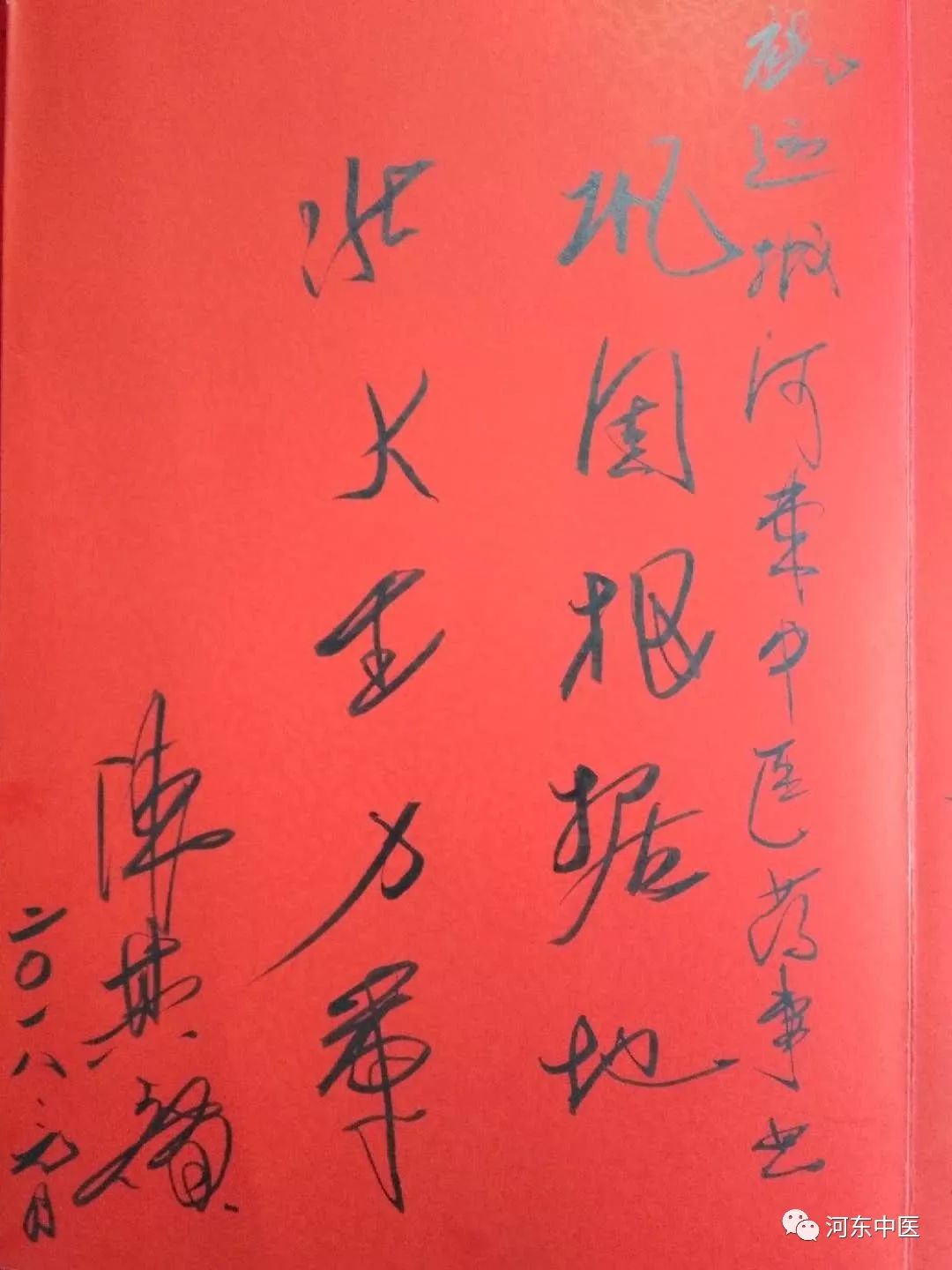
(Professor Chen Qiguang, researcher at the Institute of Economic Research, Chinese Academy of Social Sciences, and executive leader of the National Research Group on Traditional Chinese Medicine, inscribed for “Hedong Traditional Chinese Medicine”
